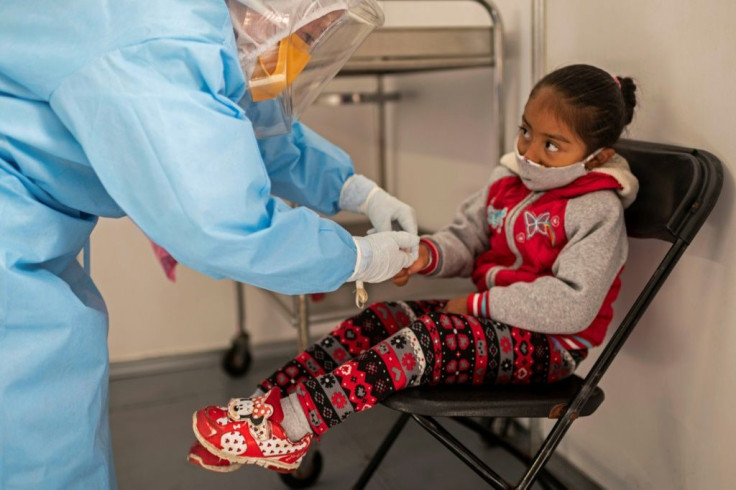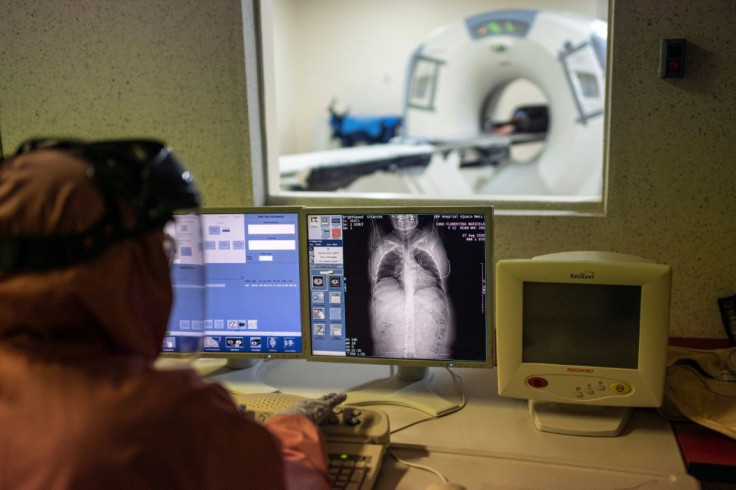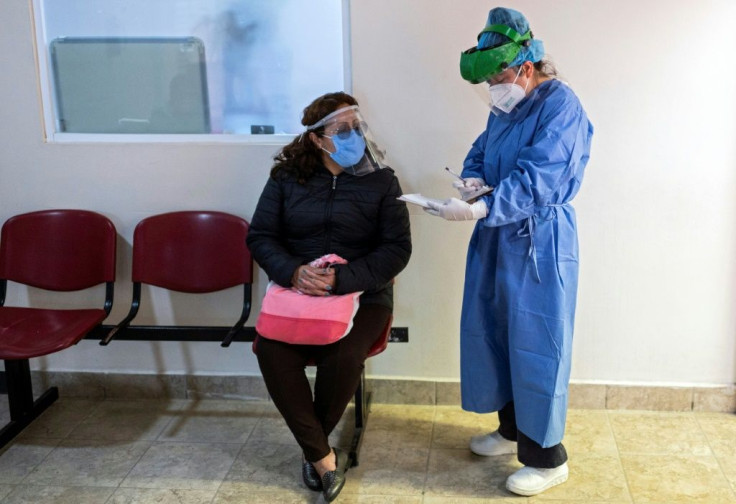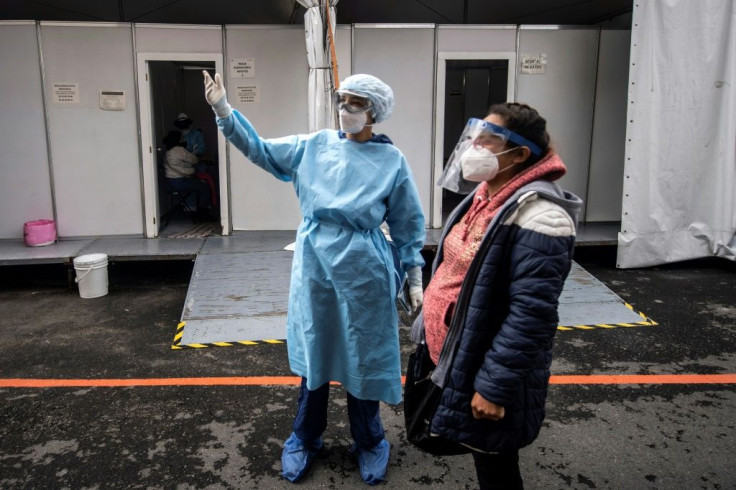Pandemic Baptism Of Fire For Young Mexican Doctors
For newly graduated doctors on the front line of Mexico's coronavirus battle, the health crisis unleashed by the pandemic has been unlike anything they imagined during years of training.
"Never during our studies did they prepare us to see something like this," said Mariana Benitez, who was recruited in April to join the fight at a hospital in the capital.
"At first it was all very new and there were so many patients that you were surprised, like what is happening?" the 26-year-old told AFP.

When Mexico's first case of the virus was detected in February, the country had a shortage of 200,000 doctors, prompting the health ministry to embark on a massive recruitment drive.
As an explosion in the number of cases began to overwhelm the fragile health system, graduates barely out of medical school suddenly found themselves having to make life-or-death decisions.
Benitez and her 25-year-old colleague Grecia Hernandez are part of the triage team at the Ajusco Medio hospital who must decide how urgently patients need treatment.

After barely a week in her new job and with infections soaring in the country of 128 million, Benitez had her hardest experience yet.
"There came a point where there were so many people that we couldn't admit them," she said.
"I had to choose which patient was in the worst situation to be allowed to stay and who I had to refer to another hospital," she said.

The Latin American nation has one of the world's highest Covid-19 death tolls.

Hernandez only graduated in February and never imagined that the virus would be so devastating for Mexico, which has registered more than 65,000 deaths and 600,000 confirmed cases.
The victims include 1,320 health workers, almost half of them doctors, according to the government.
But Hernandez said that with the proper equipment, which includes a protective suit, gown, boots, hat, goggles and mask, she does not feel in great danger.
"At first the uncertainty does worry you a bit," she said. "But if you follow the protective measures it's actually a fairly safe job."
At the start of the pandemic, medical personnel complained about shortages of personal protective equipment in some public hospitals.
But Otto Tavera, 26, said that was not a problem in the emergency department at the hospital where he treats severely ill patients.
"There is work pressure and emotional depression," he said.
"But we are young, we can bear the stress and pressure of wearing a plastic suit for eight or 10 hours."
While all three said they had no regrets in their choice of career, others found the experience too overwhelming.
"I had doctors who were on leave for more than a month, totally in panic," said the head of the hospital, Jose Alejandro Avalos.
"There were people who said 'I can't handle this' and they left," he added.
For the young doctors who stayed, the pandemic has given them experience that it usually takes years to gain.
"They matured as doctors because in a few months they faced everything: from talking to relatives, to death and success," Avalos said.
© Copyright AFP 2024. All rights reserved.





















